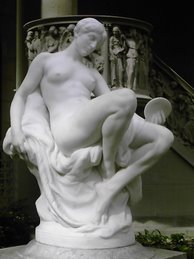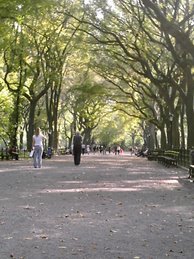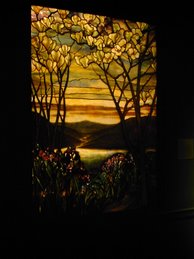By Joseph Kellard
When I was editor of the Oceanside-Island Park Herald, I gave talks to students from fourth grade up to the high school level on Career Day. I eagerly agreed to talk to students about my career and to offer them advice that would have served me well when I was their age.
While I spoke briefly about my work as a journalist, I spent most of my talk emphasizing to students that they should choose a profession that they can enjoy and love. I believe a long-range, productive career is the cornerstone of self-confidence, pride and happiness, and that an individual can't fully achieve these values stuck in a job they don't like.
To get them to understand this fact, I asked them to imagine being stuck each day, every week, in a class they disliked, whether it's math or English or science. With my analogy, some students gave a knowing groan.
I told each class my own story to give them an example of someone finding a career they loved. When I was in grade school, I was a poor student with a mild form of dyslexia, so my biggest problems were with reading, writing and spelling. Knowing I loved sports, however, my parents bought me a subscription to Sports Illustrated, believing, correctly, that this would motivate me to read. Immersing myself in stories of my sports heroes, my reading proficiency soared.
Through my teen years, I expanded my reading to include encyclopedias and works by writers ranging from Shakespeare, Dickens and Tolstoy to Hemingway, Capote and Joyce Carol Oates. I made lists of unfamiliar words and historical and mythological figures that had me reaching for my dictionaries and Britannica. During those years, I had become so fascinated with the many ways to use the English language that I began to write short stories and poems. I had decided I wanted to be a fiction writer.
My deeper purpose in telling students all of this was to get them to take my experiences as a guide for how to start thinking about their own potential careers and career choices. Specifically, I wanted them to consider some activities they enjoy, and to think about applying these to the seemingly countless career choices they have in this land of opportunity.
"Maybe you love animals and have always been intrigued by doctors," I explained to them, "so why not think of becoming a vet? Perhaps you like to talk a lot and enjoy athletics, so being a sports announcer might be your bag. Are you a numbers person? If so, maybe your calling is to teach math, be an accountant or work with statistics."
I made sure to tell them that I had left college to work at a well-paying, full-time "job" with a medical company. But within a few years I realized that this was not my field. I was bored and felt stuck, as if I were in a dreaded algebra class each day. But I noted that I never gave up on my writing and self-education, reading writers on subjects ranging from philosophy, history and art to politics, American culture and sports. I began to write some opinion columns that were published in a few semi-prominent newspapers, and this led me to try my hand at freelance reporting and, eventually, a career in journalism.
I also stressed to students that it's not enough to just dream about a particular career, but that they must take the necessary steps to attain their ideal. It's one thing to for someone to say "I want to write a novel," and another to have the motivation and commitment to invest the countless hours and enormous effort — researching information, striving to find the precise words and write perfect sentences, re-editing one draft after another — to become a published fiction writer.
When one fourth-grader told me that he would like to be the next Derek Jeter, I asked him if he played Little League and practiced baseball even during the winter. One girl told me she wanted to be a lawyer. I told her that, in part, she'll have to learn how to speak well to present her cases, and that she should take some public speaking classes when she gets to high school.
The last time I talked on Career Day, at Hegarty Elementary School in Island Park, when I left the classroom that day to head back to my office, I had hoped that at least a few students had learned a lesson that I didn't fully understand in my youth: Making a career choice is one of the most important decisions an individual will ever make — and is crucial to his or her happiness. If the students followed this advice, then they likely won't have to struggle unnecessarily for several years and through a string of dead-end jobs before finally finding a profession to be passionate about.
Wednesday, March 17, 2010
Saturday, March 6, 2010
Are You Certain You’re an Atheist?
By Joseph Kellard
When conversation about God comes up in good (or even bad) company, I, of course, tell people that I’m an atheist. Because religionists mistakenly believe that God created the universe and is the absolute moral authority, they tend to lump atheists together, recognizing no fundamental distinction between them. To them, atheism is a philosophy, a comprehensive way of viewing life and the word, if, that is, they think on that level at all. They’re blind to what atheism fundamentally is, a minor aspect of one branch of philosophy: metaphysics.
To take the conversation to the epistemological level, I make sure to tell people that an atheist is not merely someone who denies the existence of God, but is certain that he does not exist — that his believers have never presented any rational evidence for his existence.
Uttering that word, certain (or certainty), tends to jolt people, both religionists and atheists alike. Some of the faithful have told me that I can’t be certain of this. Who am I to be so brazen as to say that God certainly doesn’t exist? No non-believer can hold so absolute a position, when all absolutes derive from the word of God.
On the other side of the philosophical aisle are the subjectivist “atheists.” If there is something they don’t believe in at all, it’s not necessarily God, but rather absolutes and certainty. However, anything less than certainty on their part, in my philosophical view, is agnosticism, an epistemological position that leaves the door open for God’s possible existence. Not surprisingly, and with even a little probing, you’ll find that many self-professed atheists are just agnostics at heart — because with that organ they just feel that possibility. Anything’s possible, right?
So while I certainly don’t fundamentally define myself as an atheist – there’s much, much more to life and philosophy than God – when I do mention that I am a non-believer, I try to bring up this issue of certainty, which distinguishes my position. This gives religionists the sense that others can and do uphold absolutes — outside of God’s commandments. And the atheists wannabes sense that maybe they’re just mere skeptics, doubters of all things a truly confident person can claim to know for certain, including that God absolutely does not exist.
* I made a minor spelling correction to the original post.
When conversation about God comes up in good (or even bad) company, I, of course, tell people that I’m an atheist. Because religionists mistakenly believe that God created the universe and is the absolute moral authority, they tend to lump atheists together, recognizing no fundamental distinction between them. To them, atheism is a philosophy, a comprehensive way of viewing life and the word, if, that is, they think on that level at all. They’re blind to what atheism fundamentally is, a minor aspect of one branch of philosophy: metaphysics.
To take the conversation to the epistemological level, I make sure to tell people that an atheist is not merely someone who denies the existence of God, but is certain that he does not exist — that his believers have never presented any rational evidence for his existence.
Uttering that word, certain (or certainty), tends to jolt people, both religionists and atheists alike. Some of the faithful have told me that I can’t be certain of this. Who am I to be so brazen as to say that God certainly doesn’t exist? No non-believer can hold so absolute a position, when all absolutes derive from the word of God.
On the other side of the philosophical aisle are the subjectivist “atheists.” If there is something they don’t believe in at all, it’s not necessarily God, but rather absolutes and certainty. However, anything less than certainty on their part, in my philosophical view, is agnosticism, an epistemological position that leaves the door open for God’s possible existence. Not surprisingly, and with even a little probing, you’ll find that many self-professed atheists are just agnostics at heart — because with that organ they just feel that possibility. Anything’s possible, right?
So while I certainly don’t fundamentally define myself as an atheist – there’s much, much more to life and philosophy than God – when I do mention that I am a non-believer, I try to bring up this issue of certainty, which distinguishes my position. This gives religionists the sense that others can and do uphold absolutes — outside of God’s commandments. And the atheists wannabes sense that maybe they’re just mere skeptics, doubters of all things a truly confident person can claim to know for certain, including that God absolutely does not exist.
* I made a minor spelling correction to the original post.
Friday, March 5, 2010
The Virtue of … Objectivist “Proselytizing”
By Joseph Kellard
All the recent talk on the Harry Binswanger List about the sales and recommendations of “The Virtue of Selfishness” reminds me of the only time I recall giving that book to a perfect stranger.
Several years ago, a Jehovah's Witness family in their Sunday best was making the rounds proselytizing door-to-door on my block. They, or some other indistinguishable family, would come around occasionally, maybe once a year, and on this particular day they sent a young girl, say 10-years-old, to knock on my door.
When I opened it and said hello, she handed me a small, thin black book of excerpted Scripture. When I accepted it, the proverbial light bulb went off in my head.
I told her to wait a minute, as I climbed the stairs to my room and grabbed a copy of "The Virtue of Selfishness." I returned to the door and handed it to her, while her parents remained standing on the sidewalk at the front gate. The girl took it, thanked me and walked away. I watched out my window as she looked at the cover and showed it to her parents as they strolled to my neighbor’s house.
I never saw that girl again, and for all I know the book went in the garbage when she got home, or in the gutter on the drive there. On the other hand, perhaps she kept the book and, when old enough to understand its brilliant content, read it and went on to read Ayn Rand’s other books. Dare I speculate that she’s an Objectivist today? Who knows.
But what I do know is that I was satisfied giving that young girl something she’d never get at her church: the opportunity to face a lifetime with self-esteem and happiness.
* I made minor grammatical and spelling changes to the original post.
All the recent talk on the Harry Binswanger List about the sales and recommendations of “The Virtue of Selfishness” reminds me of the only time I recall giving that book to a perfect stranger.
Several years ago, a Jehovah's Witness family in their Sunday best was making the rounds proselytizing door-to-door on my block. They, or some other indistinguishable family, would come around occasionally, maybe once a year, and on this particular day they sent a young girl, say 10-years-old, to knock on my door.
When I opened it and said hello, she handed me a small, thin black book of excerpted Scripture. When I accepted it, the proverbial light bulb went off in my head.
I told her to wait a minute, as I climbed the stairs to my room and grabbed a copy of "The Virtue of Selfishness." I returned to the door and handed it to her, while her parents remained standing on the sidewalk at the front gate. The girl took it, thanked me and walked away. I watched out my window as she looked at the cover and showed it to her parents as they strolled to my neighbor’s house.
I never saw that girl again, and for all I know the book went in the garbage when she got home, or in the gutter on the drive there. On the other hand, perhaps she kept the book and, when old enough to understand its brilliant content, read it and went on to read Ayn Rand’s other books. Dare I speculate that she’s an Objectivist today? Who knows.
But what I do know is that I was satisfied giving that young girl something she’d never get at her church: the opportunity to face a lifetime with self-esteem and happiness.
* I made minor grammatical and spelling changes to the original post.
Subscribe to:
Posts (Atom)

























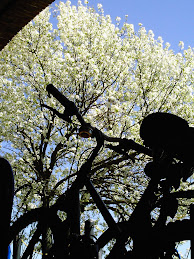



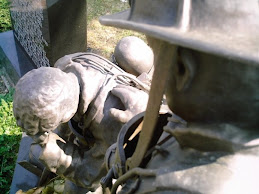

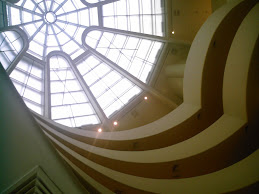+-+June+2009.jpg)


